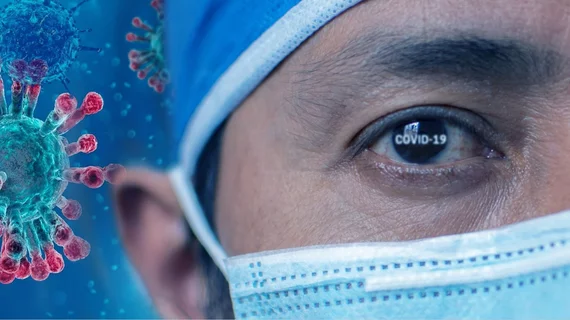Researchers question COVID-19's direct impact on the brain, say evidence is 'still lacking'
Neurological events requiring investigation or intervention were found in less than 5% of patients infected with COVID-19 but were linked to worse outcomes, Chinese researchers said Wednesday. They also reported no direct tie between the novel virus and brain impairment.
The group did conclude that patients with prior neurologic conditions and those over age 60 were at an increased risk for developing new-onset complications—including central nervous system infection, seizures and consciousness disorders—which ballooned mortality risk by six-fold compared to younger patients with the same level of infection.
Weixi Xiong, with West China Hospital of Sichuan University, and colleagues shared their findings June 17 in Neurology.
Excluded from the study were those with non-specific symptoms, such as headache and dizziness, and only one-third suffered from severe infection. These facts help explain the lower rate of overall neurologic events, they noted.
“We did not find evidence that neurologic impairments were directly caused by the virus,” the group wrote. “The severe neurologic complications we have seen are most unlikely directly attributable to the virus but it is still important to acknowledge common neurologic complications so physicians can be prepared, especially when there is no access to neurology,” they added later.
A small group of studies has found a connection between COVID-19 and adverse neurological symptoms—such as altered consciousness and headaches—typically seen in older patients. Most also conclude that the research into such an association remains largely unclear.
Xiong et al. enrolled 917 people who averaged 48.7 years old in their study, which spanned 56 hospitals across three Chinese regions. Overall, new-onset critical neurologic events occurred in 3.5% of individuals and in 9.4% of people with critical COVID-19.
Non-critical events occurred in less than 1% of patients and involved muscle cramp, unexplained headache, tics and tremors. Twenty-eight patients underwent brain CT, which revealed new findings in nine people.
The authors did point out that neuro-musculoskeletal disorders have been reported in patients infected with SARS. And said that individuals with COVID-19 who are forced onto ventilators, suffer delirium, or are exposed to prolonged sedation should be expected to experience cognitive impairment.
All in all, the direct connection between COVID-19 and abnormal brain findings remains elusive, the authors concluded.
“Evidence for an acute or direct brain insult by the COVID-19 virus is still lacking,” they wrote. “More work, particularly in large cohorts, is warranted to elucidate the full impact of COVID-19 in the central nervous system particularly in the medium and long term.”

